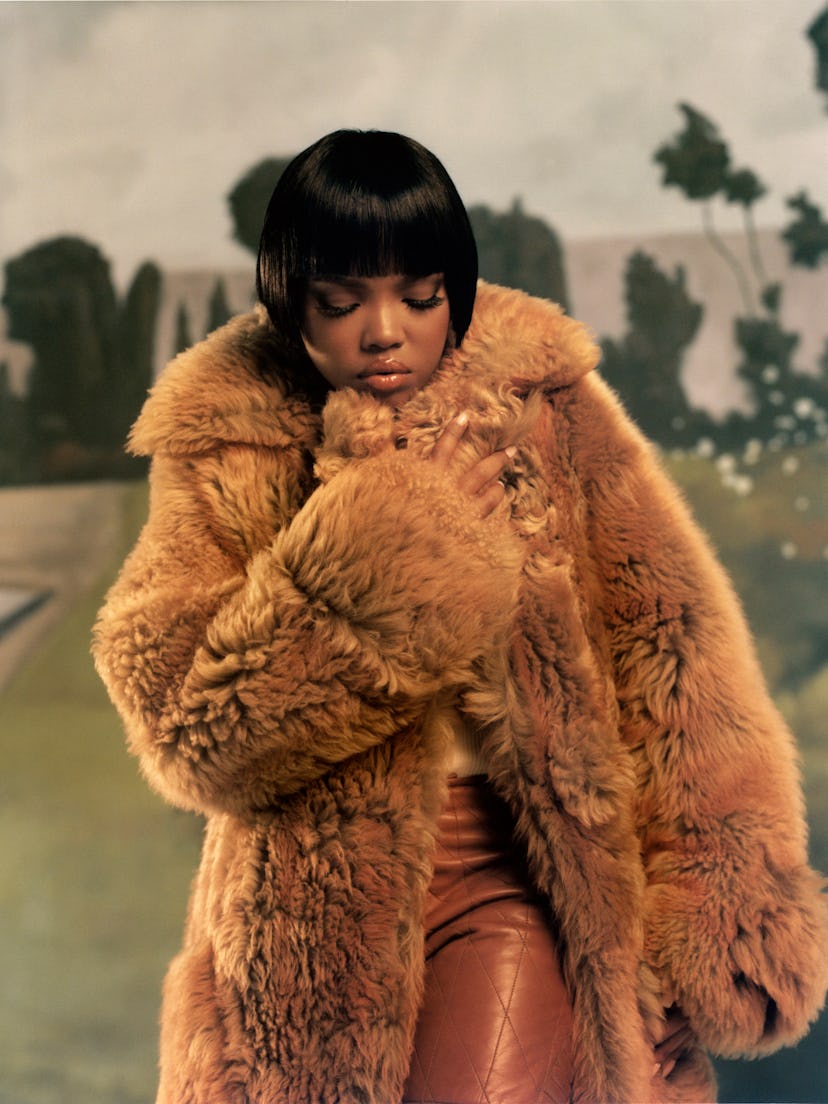Over the last six years, Micaiah Carter has made a name for himself as a preeminent celebrity and editorial fashion photographer. Documenting household names in the entertainment industry and beyond—including Megan Thee Stallion, Naomi Osaka, Pharrell, and Michael B. Jordan, to name just a handful—the photographer has honed a soft, ethereal style, marked by a keen attention to color. Many of his notable shots draw on the iconography of his childhood favorite pop stars and musicians.
“I grew up in the ’90s and 2000s watching Janet Jackson, Busta Rhymes, and Missy Elliott,” Carter tells W over the phone from Los Angeles. “All of these people have such a big influence on me. I think that [time period] was a pivotal moment for a lot of Black people because they weren’t afraid to step outside the box.”
Inspired, in part, by the ingenuity and experimental energy of these legendary artists, Carter continues to breathe life into an industry often mired in uniformity. For his debut solo show “American Black Beauty,” opening February 11 at SN37 Gallery at the Seaport in New York City, Carter expands on his love for bringing visual elements of the past into dialogue with the present and future, albeit in a much more personal way. The photographs presented in the exhibition honor Carter’s late father, a Vietnam veteran who passed away in 2021 due to prostate cancer. As part of SN37’s pledge to donate the proceeds of each exhibition to the organization of their artists’ choosing, sales from the show will benefit Agent Orange Record, an ongoing project that addresses the long-term impacts of war.
Carter weaves throughout the exhibition archival imagery of him and his father, photographs he recently took of his family members, and other original work inspired by his father’s life and legacy. The resulting story is one of innocence, grief, collective healing, and a reimagining of Black beauty. Several photographs in the collection depict intimate moments between father and child, nodding to Carter’s close relationship with his own dad, while simultaneously underscoring the need for more imagery of Black fatherhood in media. Meanwhile, portraits of Carter’s nieces—two of whom he met for the first time during this process due to limitations brought on by the pandemic—are reflections on the often futile attempt to protect the innocence of Black children, especially young Black girls.
Producing new work for this show provided Carter with an opportunity to reconnect with more free-flowing aspects of his artistic practice—something he hasn’t had as much time for since signing with an agency fresh out of college. “Creating this work allowed me to fall in love with photography all over again,” Carter says. “Throughout my grieving process, it helped me put my feelings into something beautiful.”
Through “American Black Beauty,” Carter reminds us that as we hold space for and honor Black history, we must also think actively about shaping Black futures. “A lot of my inspiration comes from archival photos, and I’m also very interested in the present and future,” Carter says. “I think a lot about what I can create today that, looking back thirty years from now, I can say, ‘Wow, that aged well and really captures how we were in this time.’”
Below, Carter expounds upon the meaning behind eight photographs that will be on view at “American Black Beauty.”
“In both of these, I was thinking about Black innocence,” Carter says. “The way my niece has her eyes closed and my nephew is covering his face. For me, it relates to these ideas about purity and perfection that I remember experiencing growing up in a Baptist church.”
“I love this photo, where this younger dad puts his son on his shoulders. And then there’s my brother holding both of my nieces. I wanted to show Black men, specifically, loving on their children.”
“These are all about pushing individuality, and not having to feel one-dimensional,” Carter says. “I was combining styles from the '70s and the 2000s that inspired me.”
